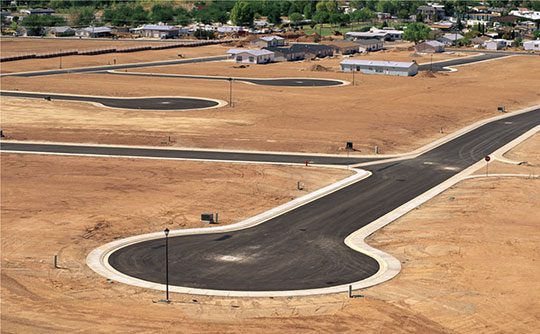Commercial Subdivision Appraisals
A Subdivision Appraisal is conducted when land is divided into multiple lots for development, typically for residential purposes. The appraisal assesses the overall value of the land based on the number of lots that can be developed, the infrastructure already in place (such as roads and utilities), and the market demand for homes or plots in the area. Appraisers will look at the potential for future home sales, zoning regulations, and any comparable subdivisions nearby. Subdivision appraisals are critical for developers and investors who need to understand the potential profitability of developing a large piece of land into smaller, saleable lots.
Subdivision Appraisals: Valuing Projects One Lot at a Time
As real estate development continues to expand across both urban and suburban areas, the need for accurate, forward-looking subdivision appraisals has never been greater. Whether you’re a developer planning a residential neighborhood or a lender evaluating risk before financing infrastructure improvements, a subdivision appraisal plays a critical role in determining whether the project is feasible and financially sound. Unlike a standard property appraisal, a subdivision appraisal considers multiple lots or units, phasing strategies, market absorption, and development costs—all of which impact the project’s value over time.

What Is a Subdivision Appraisal?
A subdivision appraisal is a specialized valuation of a real estate development project that involves dividing a larger tract of land into multiple residential, commercial, or mixed-use lots. This type of appraisal is most commonly used for residential subdivisions, where a developer plans to build and sell individual homes or lots within a master-planned community. The appraisal estimates the value of the project as a whole, factoring in construction and development costs, selling timelines, and the current market demand for similar properties.
Appraisers may also provide separate valuations for each phase of the development, including:
Raw land value
Value upon completion of infrastructure (roads, utilities, etc.)
Value of finished lots ready for sale or construction
Bulk sale or retail sale values of individual lots

Key Considerations in Subdivision Appraisals
Highest and Best Use
The appraiser first determines if the intended use (e.g., single-family homes, townhomes, or commercial lots) represents the most financially viable use for the land, considering zoning, demand, and legal restrictions.Development Costs & Timing
Detailed cost estimates for grading, utility installation, roads, drainage, permits, and amenities are factored in. The appraiser also considers how long it will take to complete each development phase and bring lots to market.Market Absorption Rates
A critical part of the appraisal is estimating how many lots or homes can be sold per month, based on local demand and competing developments. This helps calculate how long it will take to sell out the subdivision and affects the discounted cash flow.Discounted Cash Flow (DCF) Analysis
Since subdivision sales occur over time, appraisers often use a DCF model to estimate the present value of future lot sales, subtracting costs and applying an appropriate discount rate.

Why Subdivision Appraisals Are Essential
Subdivision appraisals are vital for developers, investors, and lenders because they establish whether the project is worth pursuing and how much financing is appropriate. A properly conducted appraisal supports loan approvals, investment decisions, pricing strategies, and risk mitigation. Without one, stakeholders may underestimate costs, overestimate demand, or struggle to justify the loan-to-value ratio needed to secure funding.
Subdivision appraisals are also useful for municipalities in evaluating proposed developments and understanding their long-term impact on local infrastructure, schools, and utilities.

Boston Appraisal Services: Expert Valuation for Residential Subdivisions
At Boston Appraisal Services, we specialize in accurate, data-driven subdivision appraisals that help move projects from concept to construction. Our team of experienced appraisers understands the intricacies of phased development, bulk vs. retail sales, and local zoning laws. We work closely with developers, planners, and lenders to produce reliable valuation reports that support informed decision-making at every stage of development.
Our subdivision appraisal services include:
Raw land and finished lot valuation
Phased absorption and feasibility studies
Discounted cash flow modeling
Comparable project and market trend analysis
Fast turnaround—48 hours after inspection (for qualified projects)
Whether you’re planning a new neighborhood or evaluating the viability of a large parcel, trust Boston Appraisal Services to provide the insight and expertise you need to build with confidence.

